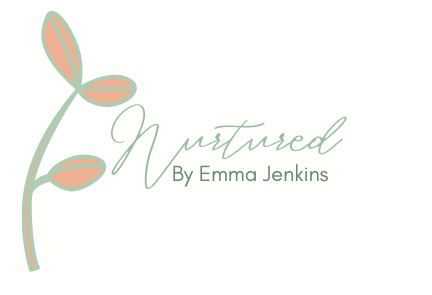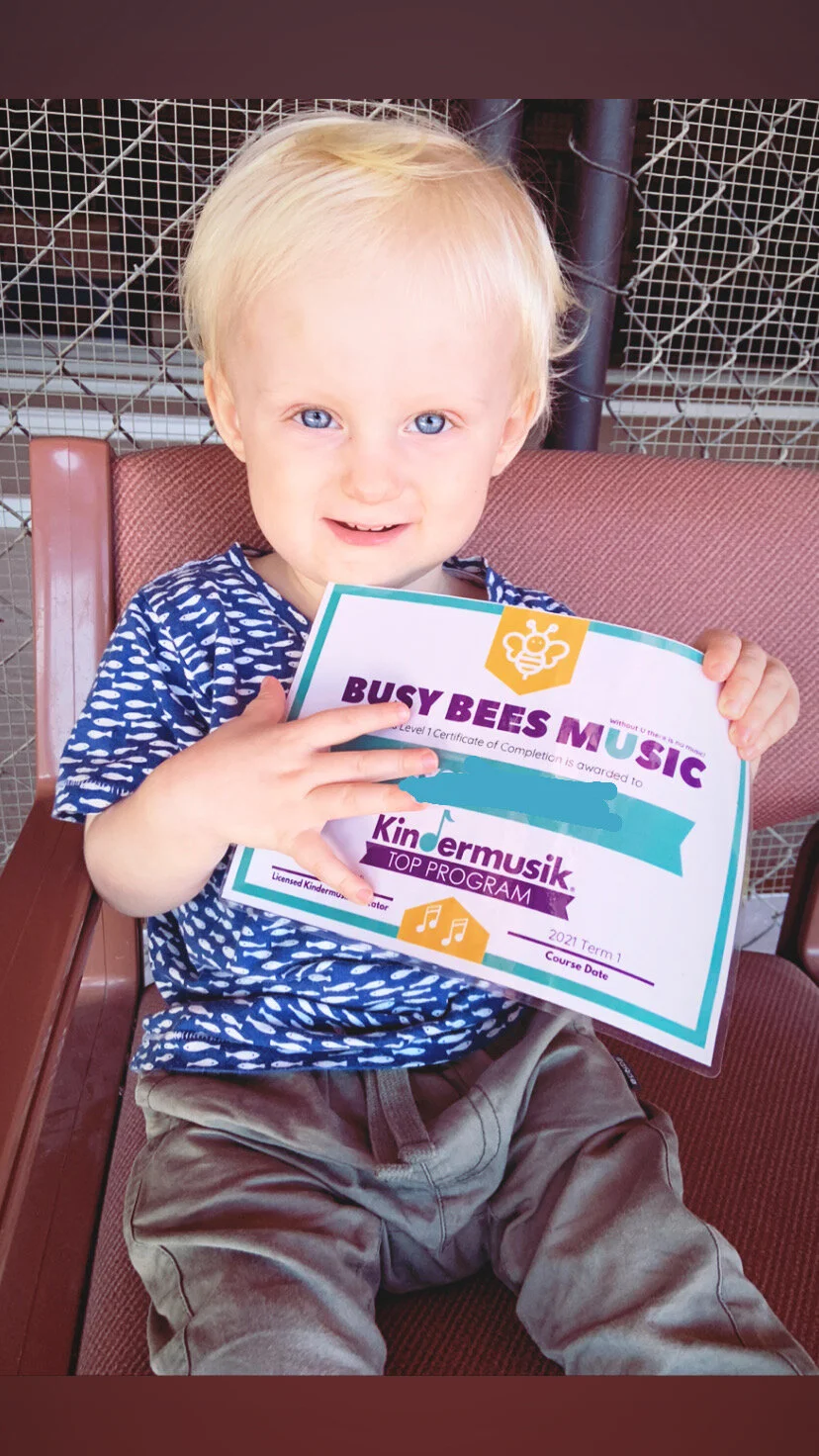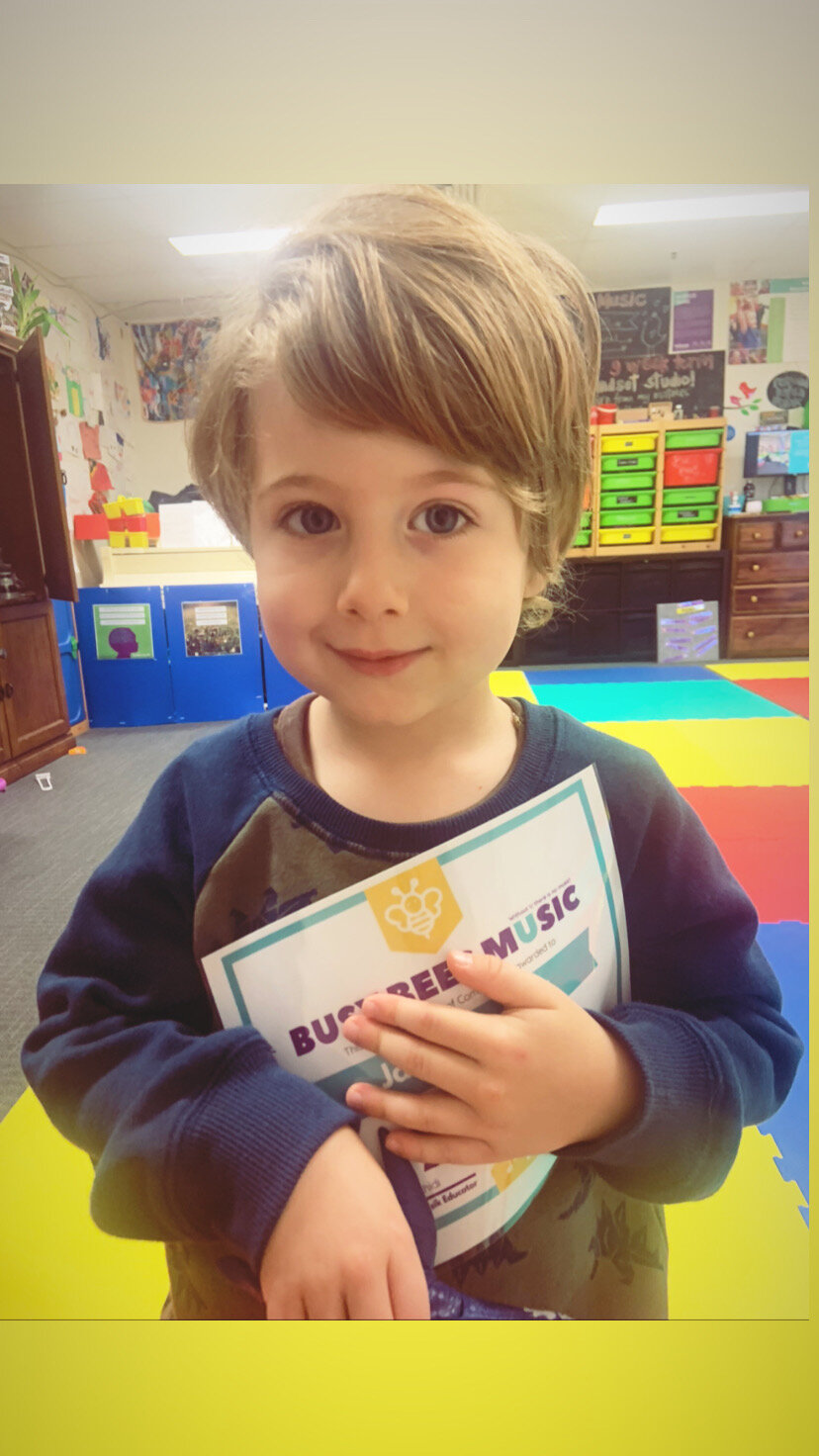Local Busy Bees is More than a Music Class
At the end of the day I think we are all just trying to raise kind, compassionate, well adjusted humans.
Busy Bees offers classes for various age groups and only children enrolled in that class can attend, encouraging one to one parent-child time.
Busy Bees is more than a ‘music class’.
It’s a warm, nurturing classroom, it’s music therapy, it’s an emotionally-responsive-parenting support group... how else to describe it ?!
Here are some of the reasons we love it so much and will ‘sing’ it’s praises for decades to come.
For me as a mum it teaches and reminds me of crucial lessons about raising children with healthy happy brains (yes as a psychologist with a background in school psychology/childhood development, I still need these reminders)
It’s about our children learning self efficacy - that sense of ‘I can do that!’ - without relying on rewards/consequences/punishments, instead building an internal intrinsic motivation, based on their own agency.
It’s about focusing on emotions, human experiences and that feeling of being appreciated as an individual, rather than praised for doing the ‘right’ thing.
It’s about building and encouraging autonomy within my child, helping me avoid becoming a ‘NO’ monster. (Fun statistic: young children hear ‘NO’ on average 400 times per day).
It’s learning how to set boundaries and predictability with respect for my child and their feelings.
It’s learning to really watch my child, lean in to their world and become a part of it - truly sharing in their experiences.
It’s about following my child’s lead, giving them power and choice in their life rather than having them live in a world that’s constantly limited by ‘the grownup’s’ agenda.
It’s weekly reminders that I should never deny or minimise any feeling / tell my children NOT to have a certain feeling, dismiss their feeling or make them think that it’s not ok to feel a certain way. Instead it reminds me to empathise, share the feeling with them to help work through it, before redirecting or offering other choices.
It’s about emotional regulation for young children in fun ways, including conditioning the brain to know how to repeat those patterns of regulation - often using cues from music and rythm.
(I promise you guys; all this stuff is teaching and psychological ‘best practice’ according to all the latest evidence. It’s the movement toward raising a generation of kind, empathic, emotionally-literate and self confident humans.)
•It can be accepting that my child is their own person, and that their needs, desires and even behaviours (like the ways in which they practice dealing with pain, disappointment and fear) are not always in line with what I would like or expect.
• It’s accepting that learning HOW to regulate their emotions will not be a perfect process and it will take TEACHING - not consequences, not punishment - and brain growth to help them achieve this in a healthy way that allows a level of self acceptance and insight. That is, it doesn’t make them robots who push down their feelings and feel shame for having them. (Fun fact; a self-aware child starts from our voice as a primary caregiver and attachment figure - they internalise what we say about them, and it becomes their inner monologue).
NB: I’m not affiliated with the program - I’m a paying customer, I’m just passionate about the wellbeing and development of children and can’t look past the power in this program.
A couple of vital facts that might be part of the reason I’m so obsessed with this class:
We know that 85% of brain growth occurs during these foundational years - especially the first 1000 days. This program is sure to help some of that ‘laying the foundation’ to be high quality foundation.
We know that a secure attachment - that healthy bond between a primary caregiver and their child - is the key to basically every ‘success measure’ in life (yep; that this relationship along with social/emotional skills are more important than learning to sit still, count, read, write etc. up until around age 7) and those first 1000 days are CRUCIAL for building that relationship. Busy Bees is literally built around ‘connection’, and builds on that connection between parent and child throughout.
“To parent perfectly is a mirage. There is no ideal parent and no ideal child.”
“Don’t be so concerned with raising a good kid that you forget you already have one.”
Busy Bees has helped us transition through some incredibly rocky times.
Our story
We’ve been attending busy bees since 2020. It’s gotten us through some incredibly rocky times - including keeping my first born and I connected to each other after the birth of his baby bro shook up our world a bit, and also throughout a global pandemic and isolation period - online - keeping an aspect of calm , predictability and consistency in an otherwise tumultuous time.
Apart from all of the above I just feel that for a child’s first ‘classroom’ experience to be associated with such warmth and acceptance is absolutely priceless.
‘Don’t be so concerned with raising a good kid that you forget you already have one.’ - Glennon Doyle
She does book out but it’s worth sending an email to check what the go is. If you can get a spot, or if you’ve attended before let me know what you thought and if you’ve had a similar experience.


